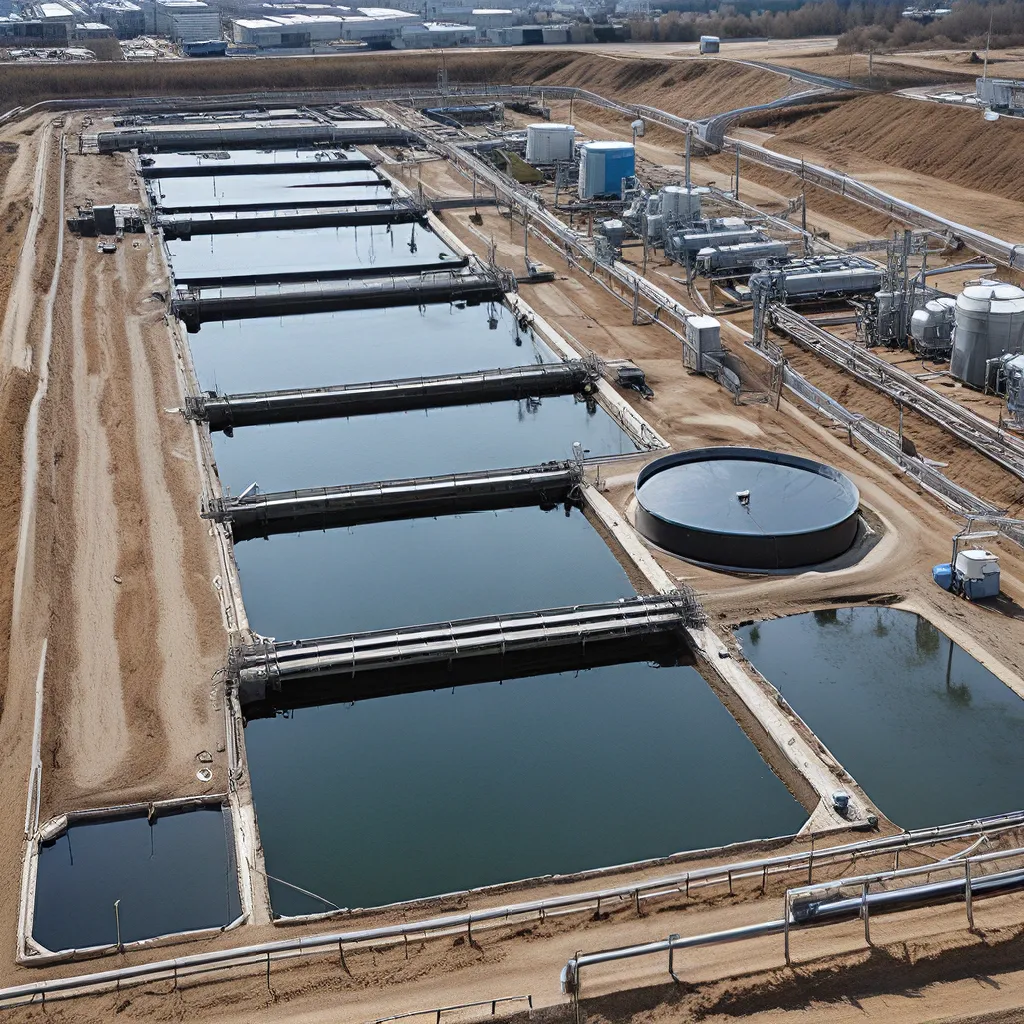
As the world grapples with the pressing issue of climate change, the transition to a hydrogen-based economy has emerged as a promising solution to address the global environmental crisis. And at the heart of this transition lies a surprising connection: the wastewater treatment industry. Yes, my friends, the very systems that handle our dirty water could hold the key to unlocking the clean energy of the future.
Hydrogen’s Rise to Prominence
The writing has been on the wall for a while now. Governments and industries around the globe have been racing to invest in hydrogen as a viable alternative to traditional fossil fuels. From the US passing its $1.2 trillion Infrastructure Investment and Jobs Act with billions earmarked for hydrogen, to the UK setting ambitious targets to produce 5 gigawatts of hydrogen by 2030, the world is clearly banking on this clean-burning fuel to help us achieve our sustainability goals.
But why all the hype around hydrogen? Well, let me break it down for you. Hydrogen is an incredibly versatile energy carrier that can be used in a wide range of applications, from powering vehicles to heating homes. And the best part? When produced using renewable sources, it produces zero emissions, making it a dream come true for environmentalists and policymakers alike.
The Water Sector’s Role in the Hydrogen Revolution
Now, you might be wondering, “What does this have to do with wastewater treatment?” Well, my friends, the water sector is poised to play a pivotal role in the hydrogen economy. Here’s how:
Pathway 1: Final Effluent Electrolysis
One of the most promising pathways for wastewater treatment plants to produce hydrogen is through the process of electrolysis. This involves using renewable electricity to split water molecules into hydrogen and oxygen. And get this – the final effluent from wastewater treatment plants can be used as the water source for this process, creating a neat little symbiotic relationship.
Imagine a world where your local wastewater treatment plant isn’t just cleaning up our dirty water, but also churning out clean, renewable hydrogen to power our communities. It’s a match made in heaven, if you ask me.
Pathway 2: Ammonia Production
Another intriguing possibility is the production of ammonia from wastewater. Ammonia can then be used as a carrier for hydrogen, making it easier to store and transport. This could be a game-changer for water companies looking to export their hydrogen to industrial users or even inject it into the national gas grid.
Pathway 3: Advanced Thermal Treatment
But wait, there’s more! Some wastewater treatment plants are exploring the use of advanced thermal treatment (ATT) technologies to convert sewage sludge into a hydrogen-rich syngas. This not only helps to reduce the volume of waste, but also creates a valuable fuel source that can be used on-site or sold to the wider hydrogen market.
Pathway 4: Biogas Pathways
And let’s not forget about the good old-fashioned biogas that’s already being produced at many wastewater treatment plants. This methane-rich gas can be upgraded and refined to create a high-quality biomethane that can either be used directly as a fuel or, you guessed it, converted into hydrogen.
The Challenges and Opportunities Ahead
Now, I know what you’re thinking: “This all sounds great, but what about the challenges?” Well, my friends, the transition to a hydrogen-based economy is not without its hurdles. The transport and storage of hydrogen can be tricky, and the infrastructure required to support a widespread hydrogen network is still in its infancy.
But fear not, for where there are challenges, there are also opportunities. Wastewater treatment companies are uniquely positioned to play a crucial role in the hydrogen revolution, leveraging their existing assets and expertise to become key players in this emerging market.
The Future of Wastewater Treatment
As we look to the future, it’s clear that the water sector will be at the forefront of the transition to a hydrogen-based economy. No longer will wastewater treatment plants be seen as simply a necessary evil, but rather as vital hubs of renewable energy production, helping to power our communities and drive us towards a more sustainable future.
So, the next time you flush the toilet or take a shower, remember that you’re not just getting rid of your waste – you’re contributing to a revolution that could change the world. It’s a powerful thought, isn’t it? And who knows, maybe one day your local wastewater treatment plant will be the talk of the town, not for its odor, but for its hydrogen-fueled prowess.
Alpha Wastewater is at the forefront of this exciting transition, using innovative technologies and a deep understanding of the industry to help water companies navigate the challenges and seize the opportunities of the hydrogen economy. So, if you’re ready to be a part of the solution, let’s talk and see how we can work together to create a cleaner, greener future.